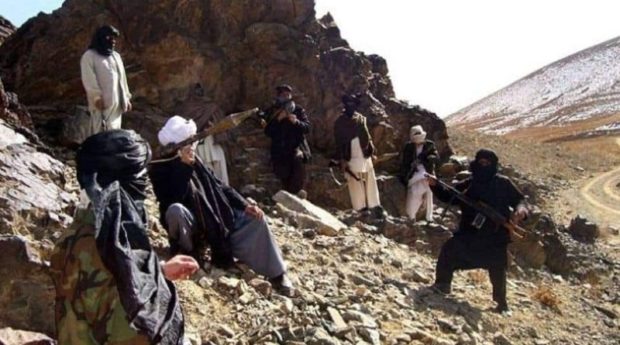
Pakistanis head terror groups ISIL-K, AQIS, TTP; not yet blacklisted: UN report
Team Udayavani, Jul 26, 2020, 10:46 AM IST

United Nations: Pakistani nationals remain at the leadership levels in terror groups such as al-Qaida in the Indian Subcontinent, Islamic State in Iraq and the Levant – Khorasan and Tehrik-e-Taliban Pakistan, and many of them are yet to be blacklisted, according to a UN report.
The 26th report of the Analytical Support and Sanctions Monitoring Team concerning ISIL, al-Qaida and associated individuals and entities said that in April and May, the Afghan special forces conducted a series of countrywide operations and arrested the head of the ISIL-K Aslam Farooqi (also known as Abdullah Orokzai) and his predecessor Zia ul-Haq (also known as Abu Omar Khorasani) and others.
Farooqi, who hails from Pakistan’s Khyber Pakhtunkhwa, is the mastermind behind the deadly terror attack on a prominent gurudwara in Kabul in March that killed 25 Sikhs.
He is not blacklisted by the UN Security Council’s 1267 al-Qaeda Sanctions Committee. Similarly, Haq is also a Pakistani national and has not been blacklisted yet.
Al-Qaida in the Indian Subcontinent (AQIS) operates under the Taliban umbrella from Afghanistan’s Nimruz, Helmand and Kandahar provinces and its current leader is Pakistan-born Osama Mahmood, who is also “not listed” under the UNSC sanctions. Mahmood succeeded Asim Umar.
The report said that the group reportedly has between 150 and 200 members from Bangladesh, India, Myanmar and Pakistan and “is reportedly planning retaliation operations in the region to avenge the death of its former leader.”
The Sanctions Monitoring Team report said that the “large terrorist group present in Afghanistan” Tehrik-e-Taliban Pakistan (TTP) is led by Amir Noor Wali Mehsud.
Pakistan-born Mehsud was designated a global terrorist by the UNSC sanctions committee only this month, more than two years after he was named the TTP leader, following the death of former TTP head Maulana Fazlullah.
Mehsud is supported by his deputy Qari Amjad and TTP spokesperson Mohammad Khorasani, both not listed under the UNSC sanctions.
This demonstrates that the Pakistani nationals operate at leadership levels in the terror organisations and point to the terror groups’ Pakistani links.
The report said that al-Qaida is covertly active in 12 Afghan provinces and its leader Aiman al-Zawahiri remains based in the country.
The monitoring team estimates the total number of al-Qaida fighters in Afghanistan at between 400 and 600.
The leadership maintains a close contact with the Haqqani Network. In February 2020, al-Zawahiri met with Yahya Haqqani, “the primary Haqqani Network contact with al-Qaida since mid-2009, to discuss the ongoing cooperation.”
Udayavani is now on Telegram. Click here to join our channel and stay updated with the latest news.
Top News

Related Articles More

India & Kuwait elevate ties to strategic level; ink defence pact after PM Modi meets top Kuwaiti leaders

In Kuwait, PM Modi meets yoga practitioner, other influencers from Gulf country

PM Modi receives Kuwait’s highest honour

PM Modi in Kuwait meets translator, publisher of Mahabharata, Ramayana in Arabic

Indian manpower, skills will help build ‘New Kuwait’: PM Modi
MUST WATCH
Latest Additions

Kannada Sahitya Sammelana: Food distribution creates stir

Rohit gets hit in nets, practice pitches on slower side

India & Kuwait elevate ties to strategic level; ink defence pact after PM Modi meets top Kuwaiti leaders

In Kuwait, PM Modi meets yoga practitioner, other influencers from Gulf country

Notorious gangster wanted in UAPA case arrested at Nepal border
Thanks for visiting Udayavani
You seem to have an Ad Blocker on.
To continue reading, please turn it off or whitelist Udayavani.

















